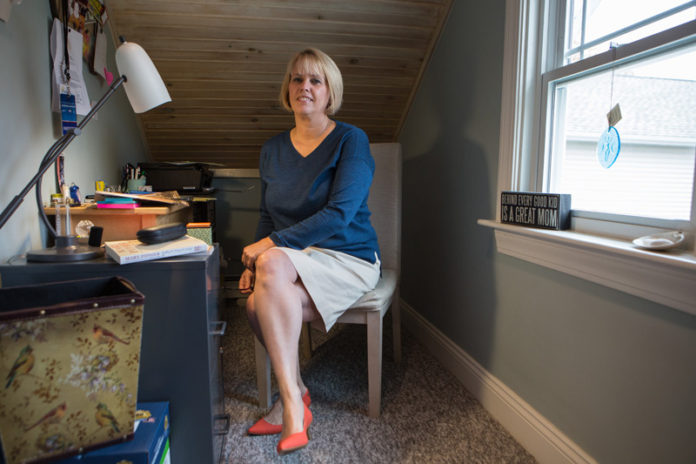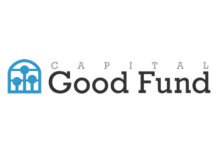
Helping organizations grow by building on their strengths is Marcia Cone’s forte.
After spending the better part of a decade building the nonprofit The Women’s Fund, Cone in July decided to tap into a longstanding consulting practice and strike out on her own.
“So much of my work has been about growing organizations, so I’m really excited about growing my own business,” said Cone, an East Greenwich resident.
Gender equality and operating on a par with men in business and in life had always been on Cone’s radar, particularly since she was the older middle daughter in a family of seven children, and had watched her mother struggle when she had to go to work to bring in a second income after the economy tanked in the 1970s.
Cone embraced gender equality in the early 2000s at the Women’s Fund when it was still a fund at the Rhode Island Foundation, she said.
“I just remember the moment I found out there was a Women’s Fund in Rhode Island,” she recalled, “and I was so excited and intrigued by that. I’m sure my social work training had a lot to do with that.”
Her career before becoming founding executive and CEO of the nonprofit Women’s Fund in 2005 at age 43 is marked by a record of leadership. She found herself being promoted wherever she worked – at Boysville Inc. in Converse, Texas, in the mid- to late 1980s; at the Key Program Inc., in Providence between 1988 and 1993; and at the Rhode Island Children’s Crusade in Providence (now the College Crusade), from 1993 to 2001.
“I like to solve complex problems,” she said. “I realized I was being moved into leadership positions no matter where I landed. I was interested in the change process and I put myself out there so I grew my leadership skills and abilities.”
In the early 1990s while at the Children’s Crusade, for instance, she developed, implemented and analyzed program evaluation systems and trained and supervised a team of 50 school case managers for AmeriCorps and Gear Up. The Clinton Whitehouse honored her work for the latter two programs, she said.
“I believe everybody should have the opportunity to experience and access their potential,” she said. “Where people might give up on women, girls who are struggling, I think that struggle is the point of true opportunity.”
At the Women’s Fund, one of her major accomplishments was advocating for the temporary-caregiver insurance law in 2013, which allows people to remain a part of the workplace while taking time off to care for a loved one.
She also launched a program in 2010 in partnership with Vision 2020 called the Rhode Island Gubernatorial Appointment Project. RIGAP aims to get more women in leadership positions in government. Vision2020 is a national coalition committed to achieving women’s economic and social equality by 2020, the 100-year anniversary of women’s suffrage.
Working with Gov. Lincoln D. Chafee, the Women’s Fund increased women’s representation on boards and commissions and in the governor’s cabinet from 15 percent to 34 percent, Cone said.
“It required a significant shift in the way people are thinking about work and families and recognizing employees as whole people,” she said. “The business community quite honestly wasn’t necessarily excited about this. [Yet], the intention was to help them retain their talent.”
More than 2,000 women and men have already used the temporary caregivers’ insurance program, she said.
Some of Cone’s biggest challenges have been in transformational leadership, which often leads to shifts in culture.
She believes she has helped people “get past that to a place where they can understand why the changes we were talking about were important for them personally and for the state of Rhode Island,” she said.
Despite success at the Women’s Fund, Cone decided this past summer to move on.
The Women’s Fund “was my baby,” she acknowledged, “but I have a real belief in life cycles as a leader. There comes a time when you have to evaluate whether new leadership would advance the organization and whether you’re still being fed and growing as a leader. I started to realize I could have a greater impact beyond the borders of Rhode Island if I could do more consulting work.”
Working out of a home office, she guides individuals and groups in organizational leadership and transformation using strategies for social change. Her clients range from the Women’s Funding Network and other Women’s Funds around the country, to the American University’s Women and Politics Institute and Wheaton College, where she also teaches.
Her favorite mentor is Dr. Martha Pitt-Catsouphes, a professor in the graduate School of Social Work at Boston College, for whom she was a research assistant.
“She was a model for how I could take the strength of building things into the workplace,” Cone said. “And she was just really truthful with me: talked about when things are difficult with work-life balance and networking and how critical those relationships were. And not only did she tell me about it: I watched her do it.” •












